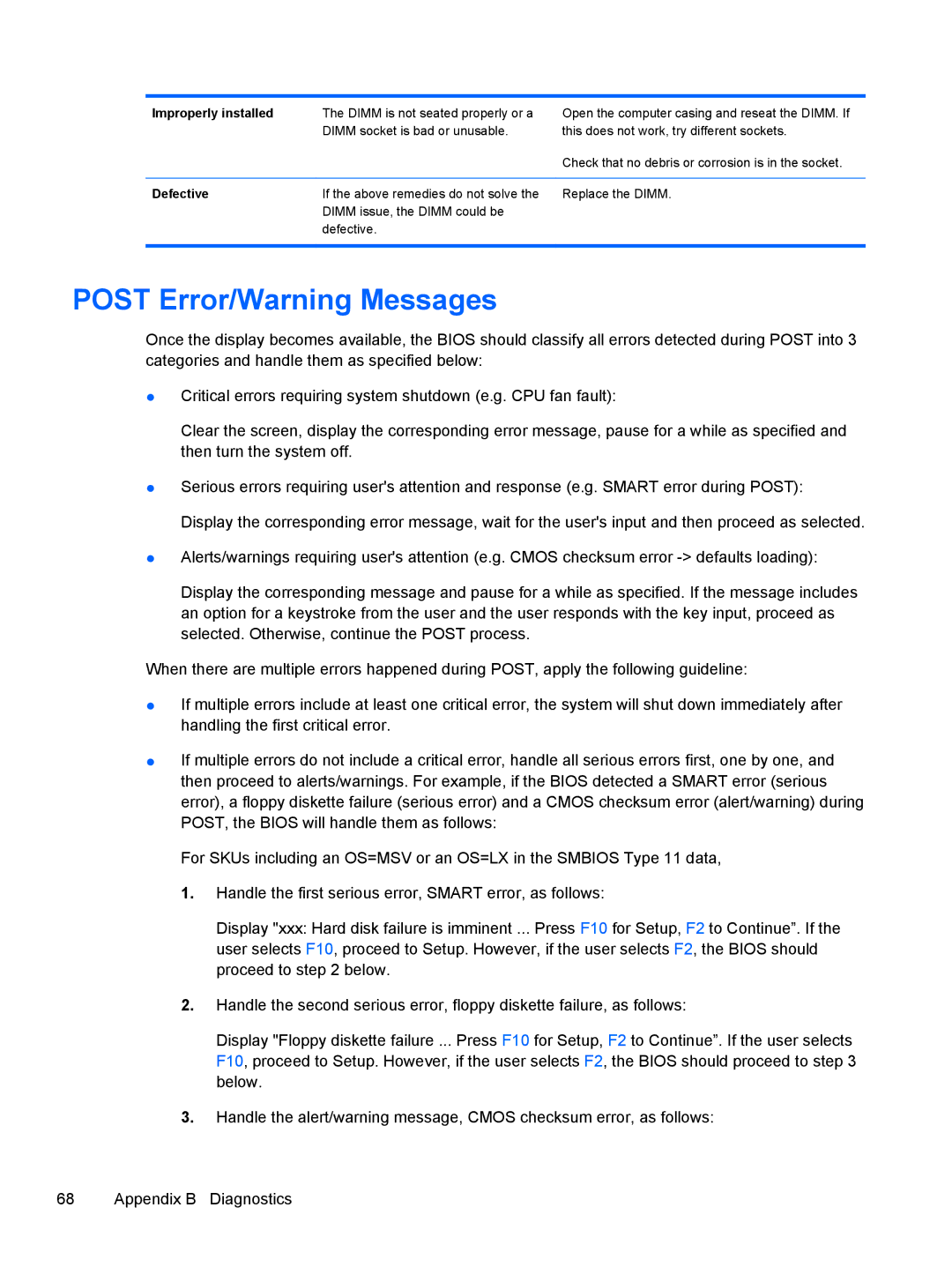
Improperly installed | The DIMM is not seated properly or a |
| DIMM socket is bad or unusable. |
Open the computer casing and reseat the DIMM. If this does not work, try different sockets.
Check that no debris or corrosion is in the socket.
Defective | If the above remedies do not solve the | Replace the DIMM. |
| DIMM issue, the DIMM could be |
|
| defective. |
|
|
|
|
POST Error/Warning Messages
Once the display becomes available, the BIOS should classify all errors detected during POST into 3 categories and handle them as specified below:
●Critical errors requiring system shutdown (e.g. CPU fan fault):
Clear the screen, display the corresponding error message, pause for a while as specified and then turn the system off.
●Serious errors requiring user's attention and response (e.g. SMART error during POST):
Display the corresponding error message, wait for the user's input and then proceed as selected.
●Alerts/warnings requiring user's attention (e.g. CMOS checksum error
Display the corresponding message and pause for a while as specified. If the message includes an option for a keystroke from the user and the user responds with the key input, proceed as selected. Otherwise, continue the POST process.
When there are multiple errors happened during POST, apply the following guideline:
●If multiple errors include at least one critical error, the system will shut down immediately after handling the first critical error.
●If multiple errors do not include a critical error, handle all serious errors first, one by one, and then proceed to alerts/warnings. For example, if the BIOS detected a SMART error (serious error), a floppy diskette failure (serious error) and a CMOS checksum error (alert/warning) during POST, the BIOS will handle them as follows:
For SKUs including an OS=MSV or an OS=LX in the SMBIOS Type 11 data,
1.Handle the first serious error, SMART error, as follows:
Display "xxx: Hard disk failure is imminent ... Press F10 for Setup, F2 to Continue”. If the user selects F10, proceed to Setup. However, if the user selects F2, the BIOS should proceed to step 2 below.
2.Handle the second serious error, floppy diskette failure, as follows:
Display "Floppy diskette failure ... Press F10 for Setup, F2 to Continue”. If the user selects F10, proceed to Setup. However, if the user selects F2, the BIOS should proceed to step 3 below.
3.Handle the alert/warning message, CMOS checksum error, as follows:
68 Appendix B Diagnostics
